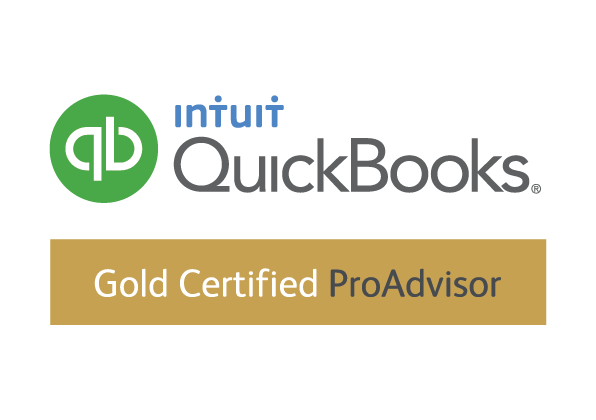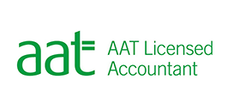|
The question as to whether there exists a property business or not for tax purposes is a key question for many taxpayers, until only a few years ago there was very little guidance or case law to assist in coming to an answer. The case of ‘Elizabeth Moyne Ramsey V Revenue and Customs Commissioners (2013)’ in the Upper Tribunal, which went in favour of the taxpayer (Mrs Ramsey) can be seen to set a precedent, even though the case does not even draw an accurate ‘borderline’ for the rest to use when deciding whether a qualifying business exists or not. It is very important to understand that not all property investments will be classed as businesses and this will affect whether they will qualify for incorporation relief. Case Facts
Decision In summing up the judge said “that the activity undertaken in respect of the property, again taken overall, was sufficient in nature and extent to amount to a business for the purpose of [incorporation relief]. Although each of the activities could equally well have been undertaken by someone who was a mere property investor, where the degree of activity outweighs what might normally be expected to be carried out by a mere passive investor, even a diligent and conscientious one, that will in my judgement amount to a business.” Although Mrs Ramsey qualified, the judge made it clear that other owners of investment property might only be ‘passive investors’ and not qualify and it comes down to degree of activity undertake by the investor. The relevant factors from the case & moving forward The degree of activates is the main point when it comes to qualifying or not, Mrs Ramsey spent 20 hours a week working on the property business and this was found to be sufficient to indicate that a business was being carried out and HMRC were giving pre transaction clearance based on this until recently, however we have been informed that unfortunately HMRC have now stopped issuing these clearances because of the huge number of such applications. This creates a real problem for anyone that is unclear whether or not according to the legislation their portfolio would qualify as a business or not. It would be very unfortunate to go ahead with moving their properties into a limited company only to find out that HMRC does not agree with the incorporation relief claimed and the individual is left with potentially a massive ‘dry’ bill (dry bill is where an individual is treated as though they have made a gain even though no actual money was received to pay the bill) and it’s too late to undo the transactions. Limited companies are not the only way to mitigate the potentially devastating effects of the changes introduced. If you're a landlord and wish to speak to someone about incorporating your property portfolio please contact us on info@intact-accounting.co.uk.
3 Comments
Legally joint ownership of property in the UK falls under three separate headings;
The legal definition of “tenancy” is wider than the common usage definition and includes holding a right in a freehold or leasehold. Joint Tenancy Each person’s share in the joint property is automatically passed to the other joint owner on death, this is known as “survivorship”. Neither joint owner can sell their share without the consent of the other joint owner. Each joint owner is treated as having equal shares in the property. Tenancy in Common Under a tenancy in common, the joint owners share is not necessarily equal, each owner is free to do as they wish with their share and there also is no right of “survivorship”. Pro Indivisio This is very common in Scotland and more or less the same as a Tenancy in Common. Tax Planning A Tenancy in Common allows for more scope for tax planning as it the more flexible type of joint ownership, so for example if you want to alter the split the profits from jointly owned rental properties between spouses then you will need to ensure that the property is held as tenants in common before any other steps are taken. For further information please contact us on info@intact-accounting.co.uk.
As there has been a lot of changes in property tax in recent years and the fact that we have a wealth of experience in assisting landlords with their taxes related to their portfolio's, we have decided to dedicate a page to assist landlords to keep up to date with the rapid changes and look for ways to protect their interests.
If you have a portfolio and wish to speak to someone about the changes and how it would affect you please contact us on info@intact-accounting.co.uk. |
Archives
November 2020
Recent Posts
Capital Gains Tax on Incorporation of a Property Rental Business
Have you overpaid Stamp Duty Land Tax (SDLT)? Other Implications of Property Business Incorporation SDLT on Property Partnership Incorporation Income Tax for Non-residents investing in the UK residential property Advantages & disadvantages of using a company for buy to let investments Qualifying Loan Interest The Ramsey Case, would your property portfolio qualify as a business? Joint Property Ownership Property Tax |
Privacy Policy
The information contained in this website is intended for reference, education and informational purposes only. The contents are based on, or derived from, information generally believed to be reliable, although Intact Accounting Limited accepts no liability with the user’s reliance on it.
The Information contained in or provided from or through this website does not constitute financial advice, investment advice, trading advice or any other advice. You should undertake independent due diligence and consultation with a professional financial advisor relating to these matters. You understand that using any or all of the information contained in this website is at your own risk.
The information contained in this website is intended for reference, education and informational purposes only. The contents are based on, or derived from, information generally believed to be reliable, although Intact Accounting Limited accepts no liability with the user’s reliance on it.
The Information contained in or provided from or through this website does not constitute financial advice, investment advice, trading advice or any other advice. You should undertake independent due diligence and consultation with a professional financial advisor relating to these matters. You understand that using any or all of the information contained in this website is at your own risk.
For more information contact us today on info@intact-accounting.co.uk to arrange a free no obligation initial consultation with one of our qualified consultants.
Intact Accounting Limited, 8c Canons Corner, Edgware, London, HA8 8AE.
Intact Accounting Limited, 8c Canons Corner, Edgware, London, HA8 8AE.
COPYRIGHT © 2014 - 2021
INTACT ACCOUNTING LTD
ALL RIGHTS RESERVED
INTACT ACCOUNTING LTD
ALL RIGHTS RESERVED






